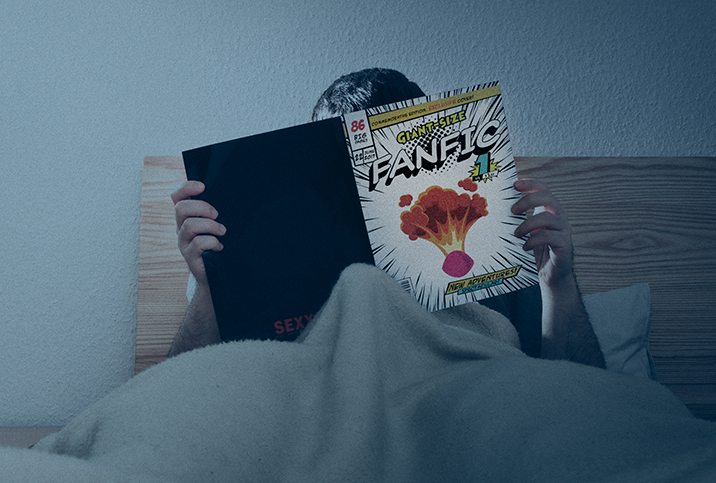Why Does Sex Feel So Good?

Most people attribute sexual pleasure to the fact that our genitals are packed with nerve endings, so you might be surprised to learn it's more complicated than this.
In fact, sex feels good for both physical and psychological reasons, including that we are designed to experience pleasure.
Genitals are innervated with nerves
For starters, sex feels good because it stimulates sensitive locations all over the body.
"We have these places on our bodies—the erogenous zones and the genitalia—that are wired to connect with a place in the brain [the sensory cortex] that processes sensations," said Nan Wise, Ph.D., a neuroscientist and certified sex therapist in New Jersey, and the author of "Why Good Sex Matters."
The clitoris and penis are innervated with the pudendal nerve, which is responsible for carrying sensations from the external clitoris or the skin of the penis to the brain, Wise said.
The G-spot, an area inside the vagina known for being highly sensitive and making some people "squirt," has several different nerves.
"When you get involved with the clitourethrovaginal complex [G-spot], you're enrolling all sorts of stimulation to not only the pudendal nerve and the pelvic nerve but the hypogastric nerve, which is another nerve that innervates the uterus and the cervix," Wise explained.
Additionally, we know the vagus nerve transmits sensation from the genitals to the brain.
"There are people who have complete spinal cord injury, and some of these women have reported orgasms and menstrual cramps even though the pudendal, pelvic and hypogastric nerves, depending on the level of the injury, are no longer connected between the genitals and the brain," Wise said. "They still can experience sensation from the stimulation via the vagus nerve that doesn't go through the spinal cord."
However, the reason sex feels good is not solely from stimulating nerves in the genitals. A huge part of pleasure lies in our brain's interpretation of a sensation, and not just the sensation itself.
Your brain is your biggest sex organ
While organs such as the skin, penis and clitoris all play an important role in why sex feels good, the biggest and most important sex organ you have is your brain.
"Although the body is involved in sex, the registering of the sensation actually happens in the brain/mind," Wise said.
Emily Nagoski, Ph.D., a sex researcher in Massachusetts, wrote extensively in her book, "Come As You Are: The Surprising New Science That Will Transform Your Sex Life," about how the brain interprets sensations and why this plays a vital role in making sex feel good. She used the example of being tickled to explain how your brain can interpret the same sensation in different ways.
"Say that your significant other, a crush or someone you're flirty with starts tickling you," Nagoski wrote. "You can imagine situations where that's fun, right? Flirtatious. Potentially leading to some nookie. Now imagine you are feeling annoyed with that same special someone and they try to tickle you, it feels irritating, right? It's the same sensation, but because the context is different, your perception of that sensation is different."
Wise cited an example from her research.
"In one of my studies, when women imagined pleasurable stimulation—thinking about a dildo being inserted—their brains lit up just like they were having sex," Wise said.
You can contrast this experience with a medical exam in which a speculum is inserted in the vagina, and the patient typically experiences no pleasure at all, Wise said. While similar nerves may be stimulated, the context is entirely different and, therefore, changes how the sensation feels.
"When the person imagines pleasurable sensations, the brain registers it similarly to actual physical stimulation," Wise said.
Your brain is designed for pleasure
Your brain interprets sensations and makes sense of whether it feels good, bad or painful. It's also designed to gravitate toward pleasurable sensations and move away from sensations that are painful.
"Our bodies, minds and spirits were designed for pleasure," said Laura McGuire, Ph.D., an AASECT-certified sexologist in Orlando, Florida, and author of "Creating Cultures of Consent: A Guide for Parents and Educators." "Evolutionarily, pleasure helps us bond with our partners, continue our species and live healthier lives."
Wise explained that people learn to approach things that are pleasurable while avoiding pain.
"The pleasure signal actually is an approach signal," she said. "Things that feel good and, hopefully, are good for us increase the likelihood of us doing those things, including sex."
The level of enjoyment and pleasure from sex is part of what determines whether or not we seek it. On the other end of that spectrum is pain.
"Pain signals are those which feel bad or things that are hurtful to our bodies," Wise said. "We learn to avoid or to withdraw [from those things]."
You can think of this in the simplest of ways. For example, you typically seek activities or hobbies you enjoy and avoid ones that are unpleasant, painful or reminders of past negative experiences.
What's dopamine got to do with it?
You may have heard how dopamine is used to explain why sex feels so good. But what exactly is dopamine?
"Dopamine is what I call the slutty neurotransmitter," Wise said. "It gets stimulated by sex, drugs and rock 'n' roll. Dopamine gets us to crave and want stimuli. It gets our attention on pursuing what we need. However, the most interesting thing about dopamine is that it's rewarding but it's not satisfying. It's more connected with wanting and craving. The satisfaction associated with sexual experience is more likely mediated by the release of our internal opioids and oxytocin—both of which increase during sex—rather than the dopamine buzz."
Why doesn't sex feel good for everyone?
While there are lots of feel-good chemicals and sensitive nerves associated with sex, not everyone enjoys sex or thinks it feels good. And there are many reasons for this feeling. For one, the brain gravitates toward things that feel good and away from stimuli that don't.
"When we've had bad experiences because of painful or unpleasant associations with being touched or with sex, that can really interfere with sexual pleasure and functioning," Wise explained. "Bad experiences can condition us to shut down to the possibility of experiencing sexual pleasures and sensual pleasures."
Sex may not feel good if someone has experienced "genital stimulation or penetration that is painful or unwelcomed, or if the person is anorgasmic and never or rarely experiences orgasm or only experiences muted orgasms," said Aubri Lancaster, an AASECT-certified sex educator in California. "Just because something feels good doesn't mean someone will want to do it or want to involve another person."
Additionally, Wise said stress is likely the biggest culprit that can make sex unenjoyable.
"Stress depletes our ability to be able to experience pleasure," she said. "It depletes the hormones and the neurotransmitters that are involved in pleasure."
As humans, we are designed to experience pleasure, sexual and otherwise. While at first glance sex may appear to feel good because of the happy chemicals and sensitive nerves, the reason sex feels good also has a lot to do with your brain and the context in which you experience a sensation. This is why some people can even feel sexual pleasure just by imagining it.


















